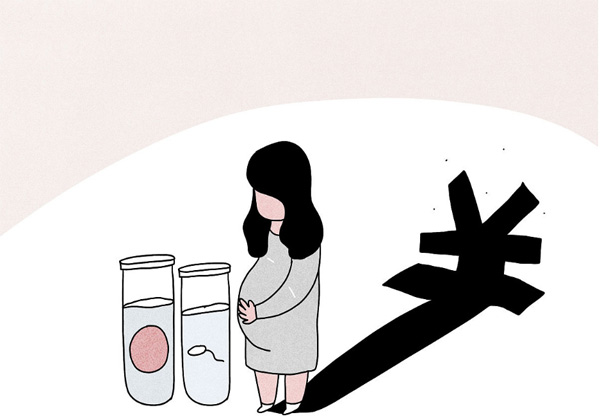代孕相关的伦理问题深度解析

代孕是指一名女性为他人怀孕生子,这一行为常被用作解决不孕不育问题的手段。然而,代孕涉及复杂的伦理问题,例如儿童最佳利益与商业化的冲突,甚至可能将怀孕过程工具化。这些问题不仅影响代孕母亲和委托父母,还可能对代孕子女的身份认同造成长期困扰。从法律框架来看,各国对代孕的态度分歧明显,有的主张全面禁止,认为其违背公序良俗;有的则试图通过立法规范以应对社会需求。此外,代孕的心理影响不容忽视,无论是孕母还是委托父母,都可能面临压力与情感挑战。本文将结合数据与案例,深入探讨这些关键问题,帮助读者更全面地理解代孕的多维影响。
代孕涉及的伦理问题
伦理问题是指关于对与错的问题,涉及道德价值观和社会规范。在代孕中,这些问题可能会影响以下群体:
- 代孕母亲:怀胎十月并生下孩子的女性。
- 意向父母:希望得到孩子的夫妻或个人。
- 孩子:通过代孕出生的婴儿。
让我们逐一分析主要的伦理问题。
1. 对代孕母亲的剥削
一个核心问题是代孕母亲的剥削。这指的是某些女性因经济需求而被利用的情况。许多代孕母亲来自经济欠发达地区,例如印度。数据显示,在更严格的法律出台前,印度曾有超过2,000家代孕诊所,约60%的代孕母亲表示她们因金钱压力而感到被迫。这种现象表明,当女性因为贫困而被迫成为代孕母亲时,这不仅是不公平的,还可能侵犯其基本人权。此外,商业代孕将怀孕过程工具化,进一步加剧了伦理争议。因此,许多人主张商业代孕应受到严格监管,以保护代孕母亲的权益和尊严。
2. 拐卖儿童指控
另一个重要问题是拐卖儿童。这一问题发生在婴儿被视为商品买卖时。跨境代孕的兴起尤其引发了担忧,因为婴儿可能从代孕母亲那里被带走并非法出售。全球代孕行业价值高达60亿美元,非法儿童转移案件正在增加。如果缺乏明确的法律框架,代孕可能演变为一种“儿童买卖”行为,严重违背公序良俗。因此,法律必须确保婴儿进入合法、合适的家庭,避免任何潜在的剥削或违法行为[[5]]。
3. 代孕母亲的健康风险
成为一名代孕母亲可能面临严重的健康风险。代孕母亲需承受妊娠相关的并发症,例如产后出血和严重子痫前期。研究表明,与正常妊娠相比,代孕母亲的并发症风险高出15-20%。具体问题包括:
- 产后出血:分娩后失血过多,可能危及生命。
- 严重子痫前期:怀孕期间高血压,可能引发器官损伤。
这些健康风险表明,代孕不仅仅是生育孩子的问题,它还可能对代孕母亲的身体造成深远伤害。因此,社会需要关注代孕母亲的健康保障,并制定相关医疗支持政策。
4. 父母权利归属
谁是孩子的真正父母?这是代孕中的一个复杂问题。有时,代孕母亲可能不愿意放弃孩子;其他时候,意向父母可能难以获得孩子的合法权利。在英国,不到50%的代孕协议能在没有法院干预的情况下明确父母权利。如果法律未能明确规定父母身份归属,可能导致家庭纠纷甚至法律诉讼。因此,建立清晰的法律框架至关重要,以确保所有相关方的权利得到公平对待。
5. 心理影响
代孕可能对所有相关人员的心理健康产生深远影响。
- 代孕母亲:她们可能会在放弃孩子后经历悲伤、失落等情绪困扰。研究表明,大约30%的代孕母亲报告称分娩后出现情绪困扰。
- 孩子:他们可能随着年龄增长对自己身份产生疑问,尤其是在基因父母与养育父母不一致的情况下。
- 意向父母:他们可能因复杂的法律程序或亲子关系的不确定性而感到焦虑。
心理咨询和支持小组可以帮助所有人处理这些情绪问题。例如,为代孕母亲提供心理辅导,帮助她适应分娩后的变化;为孩子提供成长过程中的身份认同支持;为意向父母提供法律和情感上的指导。
法律框架及其作用
不同国家对代孕有不同的法律框架。这些法律可以解决或引发伦理问题,直接影响代孕行为的合法性和相关方的权益。
1. 禁止代孕的国家
一些国家,如法国和德国,完全禁止代孕。他们认为代孕剥削了女性,尤其是经济弱势群体,可能被迫利用身体谋生。此外,他们担心代孕会引发道德争议,例如将孩子商品化或破坏传统家庭观念。法国自1994年起明确立法禁止代孕,并拒绝承认外国代孕出生的孩子的身份。这种严格的法律框架虽然保护了伦理边界,但也可能导致跨境代孕现象增加,进一步复杂化亲子关系认定问题。
2. 允许代孕的国家
其他国家,如乌克兰和加利福尼亚,允许代孕但对其进行监管。这些地方制定了严格的规则以保护各方权益。例如,乌克兰要求代孕协议具有法律效力,并明确规定意向父母为孩子的合法父母。加利福尼亚则以其完善的法律体系吸引了大量国际客户,允许通过法院预先裁定亲子关系,从而减少后续纠纷。这种模式在保障各方权益的同时,也促进了代孕行业的规范化发展。
3. 跨境代孕
当人们前往其他国家进行代孕时,会产生法律多样性。由于各国法律差异显著,跨境代孕常导致复杂的法律冲突。例如,法国公民通过美国加州代孕获得孩子后,法国政府可能拒绝承认其亲子关系。此类问题不仅涉及法律承认,还关乎儿童的最佳利益和家庭生活权。因此,国际社会亟需建立统一的法律框架,以协调跨国代孕中的法律冲突并保护所有相关方的权益。
生物伦理争论
许多人争论代孕是否在道德上正确或错误,这一争议涉及多方面的伦理权衡。
1. 平衡生殖权利
一方面,意向父母有权拥有孩子,特别是那些因医学原因无法自然生育的人;另一方面,代孕母亲也有自己的身体自主权和健康权益。这种权利冲突引发了核心争论:是否应该允许人们支付代孕费用?将婴儿视为合同的一部分是否合适?如果婴儿被商品化,可能削弱其作为独立个体的价值。
2. 代孕的商业化
一些人认为代孕将婴儿变成了商品,这引发了严重的伦理问题。为什么这是一个问题?它让人类生命看起来像是可以购买的东西,违背了生命的尊严和不可交易性。此外,商业化代孕可能导致儿童拐卖和剥削,尤其是在法律监管薄弱的地区。全球代孕行业价值约60亿美元,非法儿童转移案件正在增加,进一步凸显了这一风险。
全球视角下的代孕伦理
不同国家对代孕的态度反映了文化、法律和伦理的多样性。例如,法国禁止代孕以保护女性尊严,避免将女性身体商品化;而乌克兰则允许并监管代孕,以保障各方权益。如何在全球范围内平衡生殖权利与伦理约束,仍是亟待解决的难题,尤其是在跨境代孕日益普遍的情况下。世界各地对代孕的处理方式不同,进一步凸显了这一问题的复杂性。
1. 印度
印度曾经是代孕中心,但现在有了更严格的法律。过去,印度的代孕行业缺乏监管,导致大量诊所剥削女性,尤其是经济弱势群体。代孕母亲常因贫困被迫参与,其健康和权益得不到保障。为应对这些问题,印度政府实施了更严格的法律,禁止商业代孕,仅允许无偿代孕,即亲属之间基于情感支持的代孕行为。这种转变旨在减少剥削风险,但也限制了国际意向父母的选择。
2. 乌克兰
乌克兰允许商业代孕并对其进行良好监管。乌克兰的代孕法律明确且具有执行力,能够有效保护代孕母亲、意向父母和孩子的权益。例如,法律规定意向父母自始至终为孩子的合法父母,代孕母亲无权主张亲子关系。此外,代孕母亲得到公平报酬,并享有医疗和心理支持,减少了剥削的可能性。这种模式吸引了许多国际客户,同时也体现了对伦理和法律的平衡。
3. 美国
在美国,代孕法律因州而异。在加州等州允许商业代孕并有完善的法律保护,意向父母可以通过法院预先裁定亲子关系,从而减少后续纠纷。然而,在其他州如密歇根,所有形式的代孕都被禁止。这种法律多样性使得美国成为代孕实践的复杂案例,也反映了联邦制下各州在伦理和权利问题上的不同取舍。
4. 吉尔吉斯斯坦
吉尔吉斯斯坦近年来也成为代孕目的地之一,但其法律框架相对宽松,缺乏明确的监管机制。这导致潜在的伦理问题,例如代孕母亲权益保障不足以及儿童身份认定的法律冲突。
建议解决方案和指导方针
- 制定强有力的法律框架:法律应保护代孕母亲、意向父母和孩子,明确各方权利与义务。例如,法律需规定亲子关系的认定标准,避免因国籍或跨境问题导致儿童成为无国籍者。同时,法律应禁止剥削性行为,确保代孕过程透明且合法。
- 提供心理咨询:所有相关人员都应接受心理咨询以处理情绪,减少心理负担。代孕母亲可能在分娩后经历失落感,意向父母可能因法律纠纷感到焦虑,而孩子可能面临身份认同困惑。通过专业心理支持,可以帮助他们更好地适应角色转变和情感挑战。
- 规范经济补偿:支付给代孕母亲的报酬应公平且不具剥削性,避免将女性身体商品化。例如,乌克兰的模式表明,明确的法律监管可以保障代孕母亲获得合理报酬,同时也防止商业化代孕带来的道德风险。此外,经济补偿应结合生活成本和地区差异,确保其公正性和可持续性。
常见问题解答
-
- 代孕的主要伦理问题是什么?
主要问题包括剥削、儿童拐卖和健康风险。例如,商业代孕可能导致经济弱势女性被剥削,尤其是在法律监管不足的地区。此外,跨境代孕可能引发儿童拐卖问题,全球代孕行业价值约60亿美元,非法儿童转移案件正在增加。同时,代孕母亲面临产后出血和严重子痫前期等健康风险,这些问题不仅影响身体,还涉及伦理争议。
-
- 商业代孕是否符合伦理?
有些人认为可以接受,但另一些人认为它将婴儿变成了商品。商业化代孕容易导致生命商品化,违背伦理原则。然而,如果能通过严格监管防止剥削,则可能在一定程度上被社会接受。
-
- 法律框架如何影响伦理实践?
良好的法律保护所有参与代孕的人。例如,乌克兰的法律明确规定意向父母为合法父母,并保障代孕母亲权益,减少了伦理冲突。相反,法律缺失或模糊可能加剧剥削和纠纷。
-
- 代孕母亲和孩子有哪些心理风险?
代孕母亲可能会感到悲伤,孩子可能会有身份问题。研究表明,约30%的代孕母亲分娩后出现情绪困扰,而孩子可能因血缘与养育关系不一致产生身份认同困惑。
-
- 是否有比传统代孕更安全的替代方案?
是的,一些地方通过监管使代孕更安全。例如,美国加州允许商业代孕并提供完善的法律支持,确保各方权益得到保障。这种模式可作为其他国家的参考。
结论
代孕帮助了许多人拥有孩子,但也存在伦理问题。这些问题包括剥削、儿童拐卖和健康风险,例如经济弱势女性可能因金钱压力被迫参与代孕,跨境代孕则可能引发儿童非法交易。此外,代孕母亲面临产后并发症等健康威胁,进一步加剧伦理争议。为了解决这些问题,我们需要强有力的法律、心理咨询和公平的补偿。例如,明确的法律框架可以保护各方权益,心理咨询能缓解情绪困扰,而公平的经济补偿可减少剥削风险。通过共同努力,我们可以使代孕对每个人来说更安全、更符合伦理,从而在技术进步与道德价值之间找到平衡点。